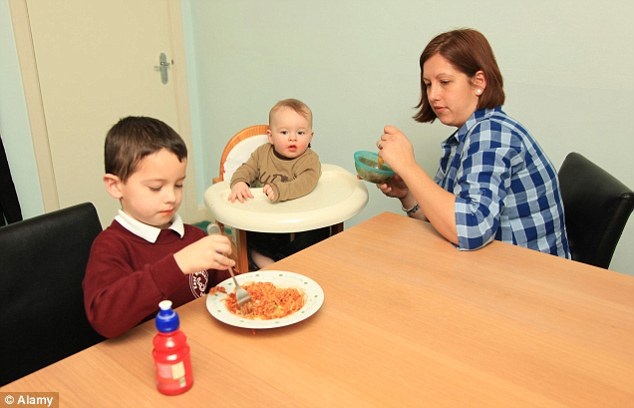 Desperate measures: One in ten parents are skipping meals so their children don't go hungry as more and more families struggle to cope with the rising cost of living.
Desperate measures: One in ten parents are skipping meals so their children don't go hungry as more and more families struggle to cope with the rising cost of living.
Photo: ‘The Daily Mail’
Homes without heating, bedrooms without beds. If we are to offer any hope to the children of austerity, the next few weeks will be decisive, writes Gordon Brown, a UK prime minister from 2007 to 2010.
Run-down housing estates in Britain’s former industrial heartlands remind us of the poverty described by George Orwell in The Road to Wigan Pier in 1937 – but these days there is no Orwell to chronicle what the arithmetic of deprivation means for families condemned to lives of poverty.
Millions of children, as the children’s commissioner for England, Dame Rachel de Souza, told us this summer, are faring very badly, living in “almost Dickensian levels of poverty”. And what she calls the striking awareness children have of being poor requires us to find a modern-day Dickens to hear their voices.
For the past two years – and from my experience of working with a new charity, Multibanks UK, which complements food banks by offering clothing, bedding, hygiene goods and baby goods for families in need – I, like the children’s commissioner, have been seeing the hidden injuries of poverty. It’s not only the shortage of basic essentials as food prices rise far faster than wages and child benefits. It’s the totality of the conditions in which so many of the generation I call austerity’s children – young people born into poverty in the Tory years – are living: homes without heating, bedrooms without beds, kitchens without kitchen utensils, floors without coverings and even toilets without toilet rolls.
For many it is much worse: damp mouldy rooms, outside toilets and no kitchen table to eat at or write up their school work on, only a cold floor. “In our kitchen there’s loads of holes that rats come through at night and sometimes they bite through our walls,” a girl of seven said in the children’s commissioner’s report. And for the nearly 170,000 homeless children in England, there is no stability: entire families are being housed in cramped temporary accommodation on top of each other. “I’ve moved houses seven times,” a 10-year-old girl reported.
It is the huge increase in the number of children in deep abject poverty that should worry us most. These children are living in families whose income is less than 50% of the median, the government’s own baseline for absolute poverty. It is difficult to see how we can meet the most recent government target – getting 75% of five-year-old children ready for school by 2028 – if we cannot lift these children up.
As the Trussell Trust has just shown, the inequities of the two-child benefit cap mean a family with three or more children is twice as likely to call on food banks for emergency help.
According to the Joseph Rowntree Foundation, one million children are destitute or near-destitute, usually going without three or more essentials – food, clothes, toiletries and a roof above their heads.
But poverty now runs even deeper, and hits children even harder, than this. I grew up in a town where I could see poverty in slum houses, the prefabs and the estates that were flooded most years as waves crashed over the harbour walls. But that did not prepare me for what I see now – the anguish of parents, unable to cope, some surrendering their children into care because they know they cannot provide for them; and, above all, the humiliations children suffer when they go without, the ostracisation they experience at school, shunned for being poor.
Their poverty is not their fault, but still they feel shame.
Up to 3 million children will have been skipping meals, while more than 2 million households will rarely have known the benefit of fresh food or hot food at home. “Mum would cry every time she was going to pay the bills,” reported a boy of 16.
Another child told her younger brother to stop asking for toys, and explained how for three years she had been holding off asking for trainers.
Another teenager I spoke with told me about having to share football boots with his brother, each missing training once a fortnight until they both grew out of the boots and neither could join in football practice at all.
But for more than a decade that tide has been coming back in, colder and deeper than ever for those swept up in it. It is time to do more than chronicle this pain as Dickens and Orwell did.
read more in our Telegram-channel https://t.me/The_International_Affairs

 10:27 20.09.2025 •
10:27 20.09.2025 •






















